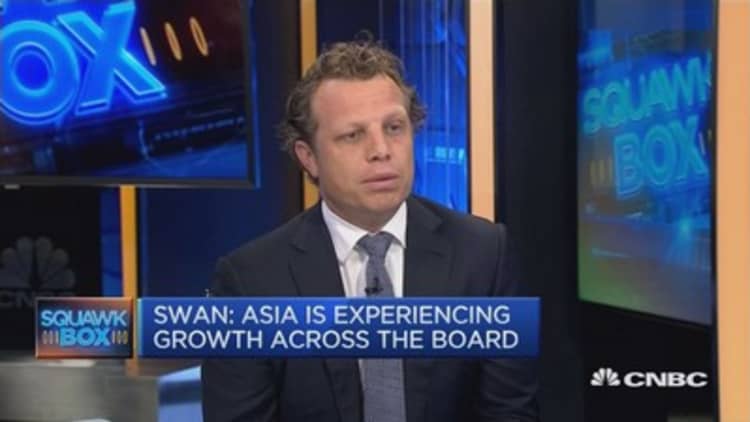
Asian markets have been strong this year as reflation remained a key theme for the region, said Andrew Swan, head of Asian and global emerging markets equities at BlackRock.
Reflation usually indicates the beginning of an economic recovery, as assets shake off the contractionary effects of any deflation and prices "re-inflate," or rise.
"The market is up around 20 percent this year, but earnings growth expectations have actually for this year moved up to close to 20 percent as well," Swan told CNBC's "Squawk Box" on Wednesday.
"In theory, the market hasn't gotten any more expensive. It's just going up in line with earnings."
One market experiencing solid growth in earnings has been South Korea, he said.
"(South) Korea, historically, has been a very cheap market, relative both to the rest of Asia and the rest of the world," Swan explained.
"But this year, you're seeing the strongest earnings growth coming through within Asia. Within (South) Korea, it's actually the strongest growth. And so the market's done very well this year for the first time in a long time," he added.
While geopolitical tensions in the Korean peninsula have weighed slightly on South Korean markets, the impact of North Korea's most recent missile launch has been muted.
South Korean markets sold off on Tuesday, but the benchmark Kospi index rebounded to trade higher by 0.15 percent at 12:35 p.m. HK/SIN. The Kospi is up 17.72 percent year-to-date.
Strength in South Korean markets can be partially attributed to leadership from the technology sector in price and earnings, Swan said, adding it's a trend across markets globally.
Still, Swan said it highlighted a distinction between old economy companies and new economy ones, pointing to dispersion in Asian markets.
Share prices of new economy companies, such as in the technology sector, have moved up ahead of earnings, while old economy companies haven't, with their share prices not really responded to the recovery in profits, Swan said.
"Investors are still skeptical on any sort of restructuring or re-emergence of growth within the old economy," Swan said.

